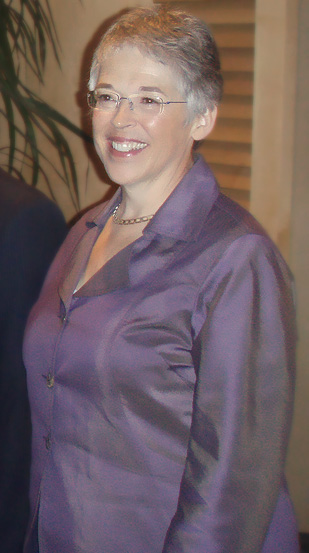Related Research Articles

The European Ombudsman is an inter-institutional body of the European Union that holds the institutions, bodies and agencies of the EU to account, and promotes good administration. The Ombudsman helps people, businesses and organisations facing problems with the EU administration by investigating complaints, as well as by proactively looking into broader systemic issues. The current Ombudsman is Emily O'Reilly.
A national human rights institution (NHRI) is an independent state-based institution with the responsibility to broadly protect and promote human rights in a given country. The growth of such bodies has been encouraged by the Office of the United Nations High Commissioner for Human Rights (OHCHR), which has provided advisory and support services, and facilitated access for NHRIs to the United Nations (UN) treaty bodies and other committees. There are over one hundred such institutions, about two-thirds assessed by peer review as compliant with the United Nations standards set out in the Paris Principles. Compliance with the Principles is the basis for accreditation at the UN, which, uniquely for NHRIs, is not conducted directly by a UN body but by a sub-committee of the Global Alliance of National Human Rights Institutions (GANHRI) called the Sub-Committee on Accreditation. The secretariat to the review process is provided by the National Institutions and Regional Mechanisms Section of the OHCHR.

The Attorney General of Ontario is the chief legal adviser to His Majesty the King in Right of Ontario and, by extension, the Government of Ontario. The Attorney General is a senior member of the Executive Council of Ontario and oversees the Ministry of the Attorney General – the department responsible for the oversight of the justice system in the province of Ontario. The Attorney General is an elected Member of Provincial Parliament who is appointed by the Lieutenant Governor of Ontario on the constitutional advice of the Premier of Ontario.

The French Language Services Act is a law in the province of Ontario, Canada which is intended to protect the rights of Franco-Ontarians, or French-speaking people, in the province.

The Special Investigations Unit is the civilian police oversight agency of the province of Ontario, Canada. The SIU is responsible for investigating circumstances involving police that have resulted in a death or serious injury, or if a firearm was discharged at a person. The unit also investigates allegations of sexual assault. The unit's goal is to ensure that criminal law is applied appropriately to police conduct, as determined through independent investigations, increasing public confidence in the police services.
The Local Government and Social Care Ombudsman (LGSCO), legally the Commission for Local Administration in England and formerly known as the Local Government Ombudsman (LGO), investigates complaints from members of the public about councils and some other some other authorities and organisations providing public services in England. It also investigates complaints about registered adult social care providers. It is the last stage of the complaints process, for people who have given the council or provider opportunity to resolve the issue first. It is a free service. Similar duties are carried out by the Public Services Ombudsman for Wales, the Scottish Public Services Ombudsman and the Northern Ireland Ombudsman. The current (interim) Local Government and Social Care Ombudsman is Paul Najsarek, whose appointment commenced on 1 April 2023.
Colonel (ret.) Kim S. Carter is the Ombudsperson of the province of British Columbia, Canada.
The Canadian Anti-racism Education and Research Society (CAERS) is a Canadian non-profit organization that tracks hate groups and extremism, provides direct support to victims of racism and discrimination, and lobbies government and governmental agencies for the development of effective policy and legislation to stop racism. The social justice law firm Rush, Crane, Guenther, provides legal counsel.
The Office of the Ombudsman of Ontario is an independent office of the Legislative Assembly of Ontario in the Canadian province of Ontario.
Ombudsmen in Australia are independent agencies who assist when a dispute arises between individuals and industry bodies or government agencies. Government ombudsman services are free to the public, like many other ombudsman and dispute resolution services, and are a means of resolving disputes outside of the court systems. Australia has an ombudsman assigned for each state; as well as an ombudsman for the Commonwealth of Australia. As laws differ between states just one process, or policy, cannot be used across the Commonwealth. All government bodies are within the jurisdiction of the ombudsman.

Riverview Hospital was a Canadian mental health facility located in Coquitlam, British Columbia. It operated under the governance of BC Mental Health & Addiction Services until it closed, in July 2012. In December 2015, the provincial government announced plans to replace the obsolete buildings with new mental health facilities, scheduled to open in about 2019. On October 12, 2021, the new Red Fish Healing Centre for Mental Health and Addiction opened on the site.

Margaret MacDiarmid is a Canadian politician and physician. She was a member of the Legislative Assembly (MLA) of British Columbia for the riding of Vancouver-Fairview from 2009 to 2013. A caucus member of the British Columbia Liberal Party, she served in several cabinet posts under premiers Gordon Campbell and Christy Clark.

An ombudsman, ombud, ombuds, bud, ombudswoman, ombudsperson or public advocate is a government employee who investigates and tries to resolve complaints, usually through recommendations or mediation. They are usually appointed by the government or by parliament.
In the United States, there is no unified federal ombudsman service. The role of handling complaints against federal authorities has to some extent been unofficially incorporated into the role of the US Member of Congress. This informal job has become increasingly time-consuming. It is subject to criticism on the grounds that it interferes with a legislator's primary duty, namely to read and be knowledgeable about a bill before casting his or her vote.
A children's ombudsman, children's commissioner, youth commissioner, child advocate, children's commission, youth ombudsman or equivalent body is a public authority in various countries charged with the protection and promotion of the rights of children and young people, either in society at large, or in specific categories such as children in contact with the care system. The agencies usually have a substantial degree of independence from the executive, the term is often used differently from the original meaning of ombudsman, it is often an umbrella term, often used as a translation convention or national human rights institutions, dealing with individual complaints, intervening with other public authorities, conducting research, and – where their mandate permits them to engage in advocacy – generally promoting children's rights in public policy, law and practice. The first children's commissioner was established in Norway in 1981. The creation of such institutions has been promoted by the United Nations Committee on the Rights of the Child, and, from 1990 onwards, by the Council of Europe.

The Independent Investigations Office (IIO) is the civilian oversight agency in British Columbia, Canada responsible for examining and investigating incidents involving on or off duty municipal police officers, Stl’atl’imx Tribal Police Service, Metro Vancouver Transit Police, Royal Canadian Mounted Police officers based in BC, Special Provincial Constables, Special Municipal Constables as well as Auxiliary & Reserve Constables that result in death or serious harm.
The Principal Group was a group of interrelated Canadian financial companies that collapsed in 1987, resulting in losses to an estimated 67,000 people. Losses were in recovered in part through provincial governments paying compensation, based on findings as to deficiencies in regulatory oversight.
The Independent Investigation Unit is the civilian oversight agency in Manitoba, Canada responsible for the investigation of incidents resulted in serious injury or death to any person. IIU has jurisdiction over all municipal police officers, First Nations police officers and Royal Canadian Mounted Police "D" Division officers, for all complaints on or off duty related.

The Office of the Independent Police Review Director is an independent civilian oversight agency that handles public complaints regarding police conduct in the Canadian province of Ontario. The agency oversees municipal police services and the Ontario Provincial Police.
The Patient Ombudsman is an ombudsman office which acts as a neutral body of last resort for complaints about the healthcare system in Ontario, Canada. The Patient Ombudsman has jurisdiction over public hospitals and long-term care homes, as well as home and community care coordinated by the Local Health Integration Networks (LHINs).
References
- ↑ Dhillon, Sunny (January 30, 2014). "B.C. Ombudsperson Asks for Feedback on Controversial Property Seizures". The Globe and Mail. Toronto.
- ↑ Sorokina, Olsy (October 29, 2013). "Ombudsperson Office Is Here for the People". Link Magazine.
- ↑ Special Committee to Appoint an Ombudsperson Report (Report). May 2012.[ full citation needed ]
- ↑ Lindsay, Bethany (May 7, 2014). "B.C. Ombudsperson Launches Investigation into Oversight of Private Career Training Schools". Vancouver Sun.
- ↑ Roberts-Farina, Jessica (October 29, 2014). "Final Days for Vancouver's Only Youth Clinic". The Thunderbird. University of British Columbia.
- ↑ "B.C. Falling Short on Environmental Monitoring, Says Ombudsperson Report". Kamloops InfoNEWS. Canadian Press.
- ↑ "A Guide To Legislation And Legislative Process In British Columbia" (PDF). www.crownpub.bc.ca.
- ↑ "Meet the ombudsperson". 4 December 2019. Retrieved 2023-08-17.
- ↑ "British Columbia Ombudsperson Kim Carter released annual report". International Ombudsman Institute. November 24, 2010. Archived from the original on July 14, 2014.